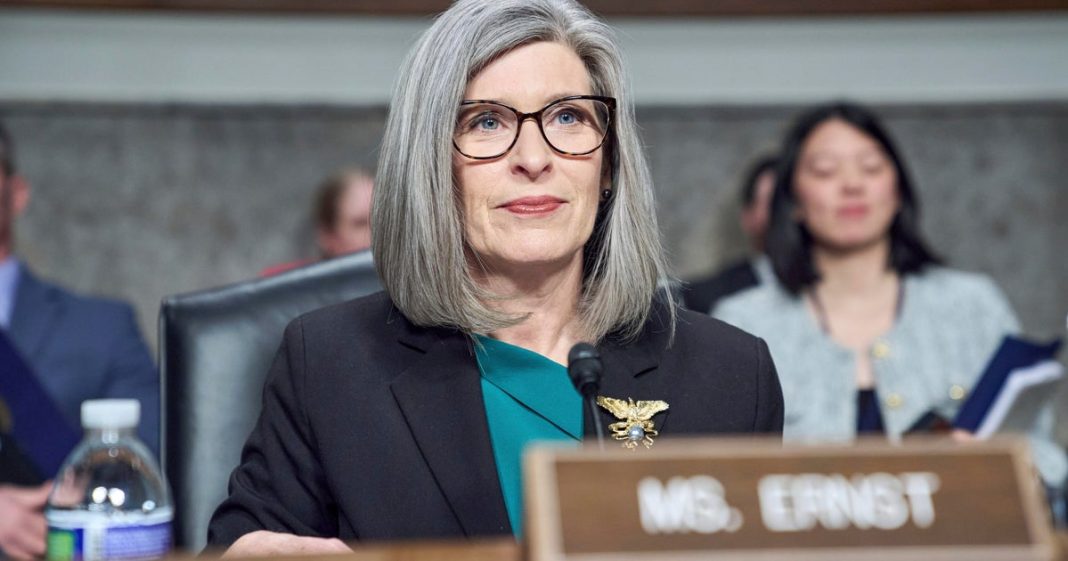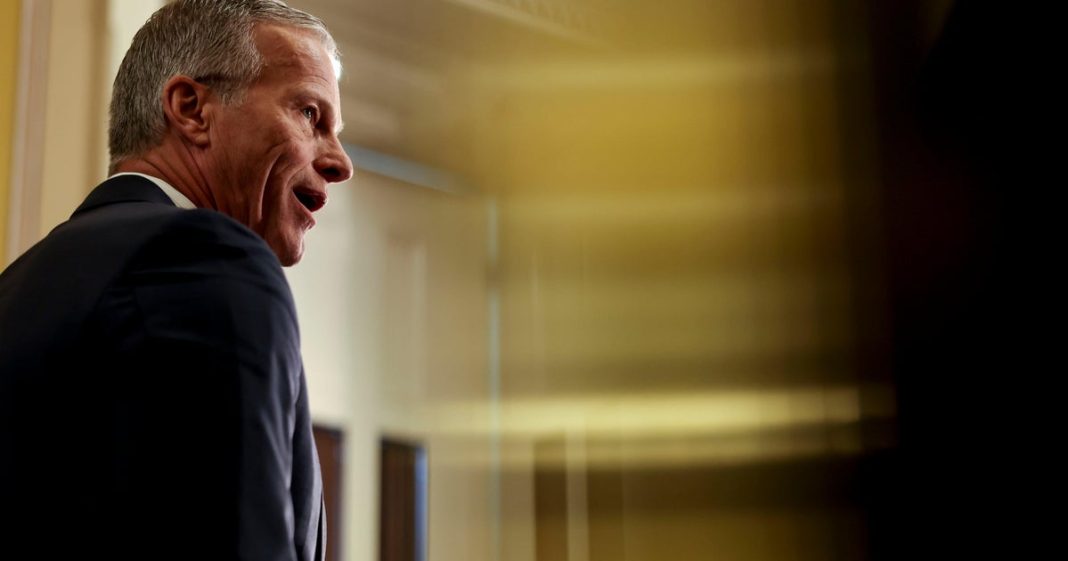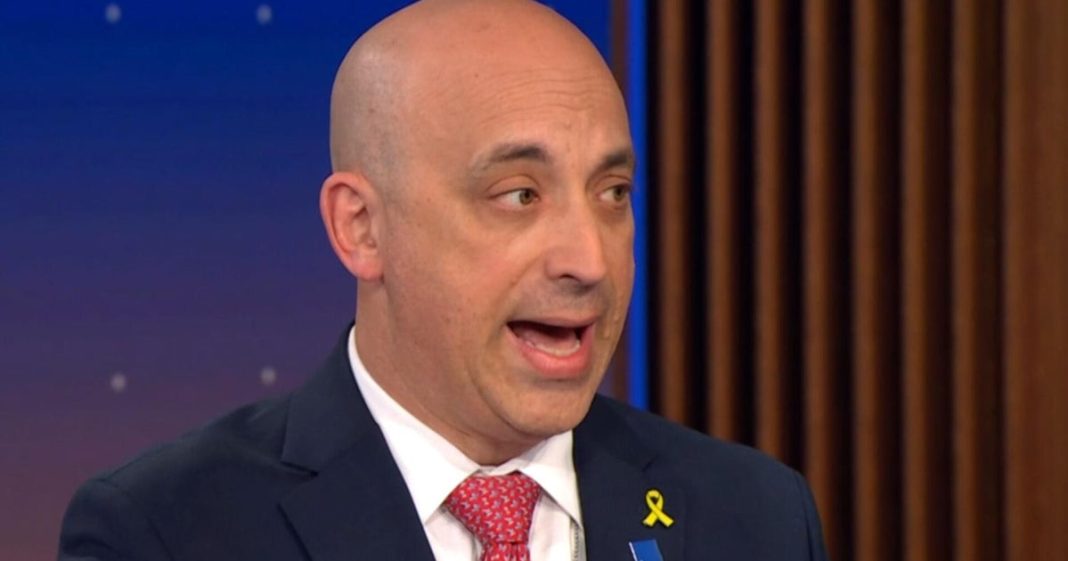Republican Sen. Joni Ernst of Iowa defended herself Monday after drawing attention for telling a town hall attendee worried about proposed changes to Medicaid that “we all are going to die.”
“I’m very compassionate, and you need to listen to the entire conversation,” Ernst told CBS News on Monday.
Ernst’s now-viral musings on mortality came during a contentious town hall meeting Friday, as attendees grilled the senator about a GOP-backed domestic policy bill that passed the House last month. The legislation — titled the One Big Beautiful Bill Act, after President Trump referred to the measure that way — would impose work requirements on some Medicaid recipients, among other changes.
At one point, as Ernst explained some of the legislation’s changes to the low-income health insurance program, a person appeared to yell that people will die.
“People are not — well, we all are going to die, so for heaven’s sakes,” Ernst responded.
Ernst went on to say that the legislation would “focus on those that are most vulnerable” and added, “those that meet the eligibility requirements for Medicaid we will protect.”
The senator later dug in and posted a sarcastic apology video to Instagram.
“I made an incorrect assumption that everyone in the auditorium understood that, yes, we are all going to perish from this Earth. So, I apologize,” Ernst said in the video. “I’m really, really glad that I did not have to bring up the subject of the Tooth Fairy as well.”
The town hall comments drew criticism from some potential opponents of Ernst, who is up for reelection next year. Nathan Sage, who is running for the Democratic nomination for Senate, said Ernst is “not even trying to hide her contempt for us.” And Democratic state Rep. JD Scholten announced Monday he’s entering the race, saying in an Instagram post he wasn’t planning to launch his campaign now but “can’t sit on the sidelines” after Ernst’s town hall.
The House-passed bill would add restrictions to Medicaid, including a work, volunteer or schooling requirement for non-disabled adults without children. The bill would also add more frequent eligibility checks, cut funding for states that use the Medicaid system to cover undocumented immigrants, freeze provider taxes and ban coverage for gender transition services.
The bill’s proposed changes to Medicaid and the Supplemental Nutrition Assistance Program, better known as food stamps, could save hundreds of billions of dollars, which would help pay for extending Mr. Trump’s 2017 tax cuts and boosting border security.
But before it reaches Mr. Trump’s desk, the bill still needs to pass the Senate, where some Republicans are pushing to roll back some of the Medicaid cuts. In last week’s town hall, Ernst said she agrees with parts of the legislation passed by the House, but “the bill will be changing.”




